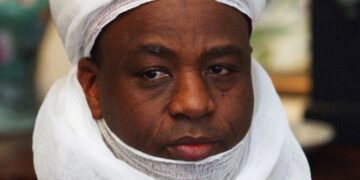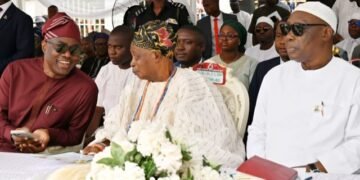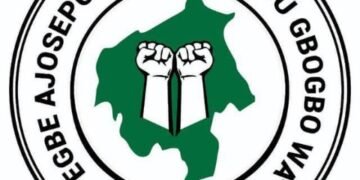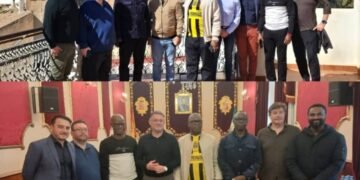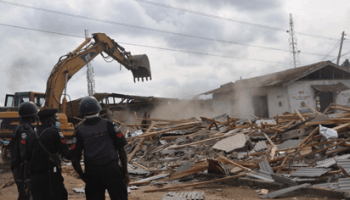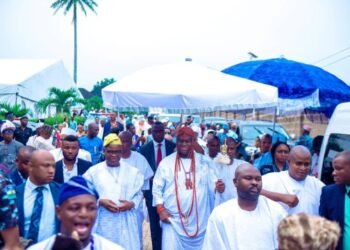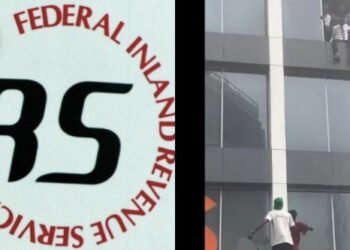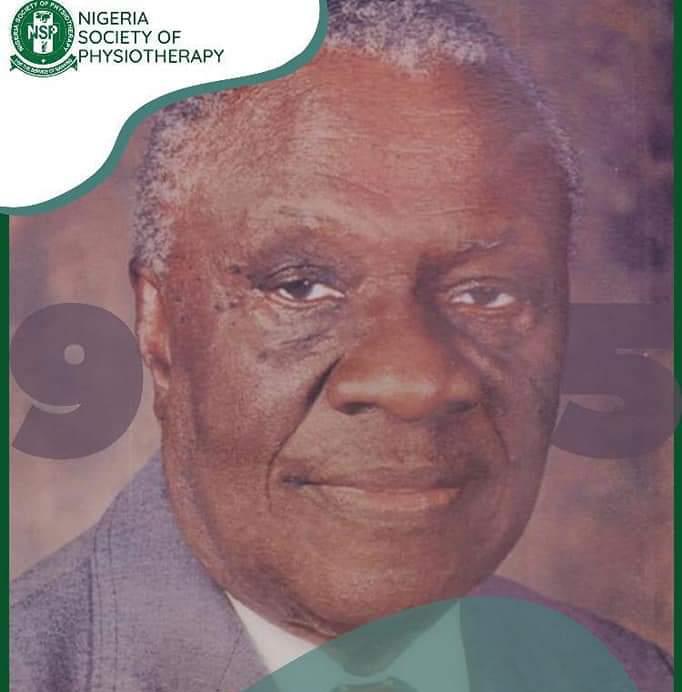I remember Old Maroko. Exactly 32 years ago, the demolition of Maroko, a Lagos surbub, started under a vicious and kleptomaniac military government.
I was just 12 years old in JSS 1 at the prestigious Methodist Boys High School, Lagos; Nigeria’s second secondary school.
The military and ruling elites, which sadly included the Awolowo family, cornered the sprawling Maroko land from poor and middle class families, turning the place into an exclusive surburb of the rich and power. Old Maroko is today’s Victoria Island Extension and Lekki Phase 1, up to Marwa Estate. The Awolowo family’s Dideolu Estate sits on Maroko land.
Maroko was a bustling, bubbling place and a melting pot for tribes, tongues and classes. It stretched from Sand Field bus stop to old Elf Oil Estate at the tip of the Lekki peninsula. Prime real.estate you’ll say.
My parents were victims of that hostile takeover; they lost everything. My father lost two properties; mother lost one.
I am a victim too. I had my childhood and friends stolen from me by a system contrived and heavily skewed against the weak.
Dreams and bodies were buried under the rubbles of Maroko. Many lost their lives, limbs and minds.
But God has been good. The children of Maroko are everywhere in the world, scattered but not buried. Godwin Emefiele, the Central Bank of Nigeria (CBN) governor is a child of Maroko. Like phoenix, they’ve risen from the ashes of pains and sorrows. They exist as testaments to the grace of God and the indomitable spirit of man.
Today, I pay tribute to the roving spirit of Maroko, which still torments the tormentors of yesterday; in particular, General Ibrahim Babangida and Col. Raji Rasaki.
I remember and salute every Maroko parents who faced the pain, loss and uncertainty of that cold day of infamy; the real definition of man’s inhumanity to man.
I salute every Maroko soul. The dead and living. The dead are not dead because they still live on in those of us who live and torment those who stole our land as we burn the light of remembrance for Maroko.
I pay tribute to every Maroko soul, especially those who have gone ahead of us to the land from where no one returns.
I remember my late father, who cried in severe pain but soon summoned courage to find an escape route for my siblings and I as the bulldozer started work from the junction of my street that cold Saturday morning. He’s one of the heroes of that better forgotten saga of pain.
32 gbosas to every child of Maroko out there; you’re the heroes and heroines of this remembrance. Wherever you are, hold your head high and your shoulders straight. Remember to thank your creator. Shed tears of joy in remembrance, if you can. Then dance and smile in memorial of sweet things past.
Oh! Maroko. My Maroko. The land of dreams and beautiful memories.
As a child of Maroko, I’ll never forget, Chief Anitini. By every Nigerian standard of that time, he was a multimillionaire. Today, his worth would be in billions. He owned several big apartment buildings all over Maroko. He had a big hotel, California Hotel and gigantic cinema house, California Cinema.
But why do I remember Chief Anitini in particular as a Maroko child? He was an extremely nice, kind and generous man. His house was very close to where Oniru Estate currently sits. It was the gateway into Maroko from Sandfield.
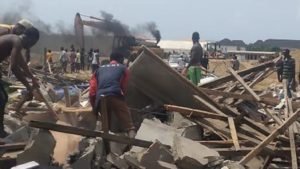
Drinking water was a formidable challenge for many Maroko residents as there was no pipe borne water. Residents used to buy water from.water vendors, who sold the essential commodity from overhead tanks. Mum was one of them.
Chief Anitini’s house was where all school children drank water to quench thirst on their way from school. Hundreds of school children (Yes! Hundreds, including the writer) usually converged on his compound on their way home to drink from his fountain of water and kindness. Even when fights broke out as they so often did with children, that kind man never chased us away.
As I write this, I remember not only his bearded face (an old man then) but his rare act of kindness to children he didn’t know and who couldn’t pay him back. The demolition of Maroko sent him to his early grave according to reports and urban legend.
But wherever his children may be anywhere in the world today, dear Lord, as I remember Chief Anitini’s good deeds today with misty eyes, repay those good deeds to them, their children and children’s children.
I remember Mama Payne of Ifeoluwa Maternity. A motherly and matronly nurse into whose hands, care and maternity home many Maroko children were born and cared for when sickness came. That woman was an angel, she was our own Mary Nightingale.
In a twist of fate and poetic justice, one of her grand children became my student at the university where I teach. I did my best to repay that woman’s kindness to her beautiful granddaughter.
I remember Maroko schools: Ansar Un Deen Primary School, Olukotun;
Ansar Un Deen Primary School, Maroko;
Ansar Un Deen Primary School, Igbosere (my alma mater, 1989 Set);
Archbishop Taylor Primary School; Kuramo College; Government College, Maroko;
Community Secondary School, Alaguntan (where Oba Akinloye, the present King of Ajiran held sway).
Names of popular Maroko streets rush into my head: Tommy Obey, Teriba, Abibu Oki, Madam Tawa, Elegushi, etc. Memories. Memories. Memories.
I remember that beautiful and iconic house, with the inscription: “IF MEN WERE GOD”. That house was in a class of its own and that inscription has stayed with me till date.
I remember football and MAFA (Maroko Football Association). How would I forget the ram fights during sallah? Or the parade of masquerades: Igunnuko, Ekpo, Eyo, Angere, Atilogwu, Ojoonu, etc during festive times?
I remember the seasonal ocean surges that flooded the town, bringing marine and amphibian creatures into streets and living rooms. I remember cutting my teeth in swimming hunting for isetan (sea shell food) in the depth of Kuramo Lagoon.
I used to fish and catch crabs where Oriental Hotel now sits majestically, blurting out the memories and footsteps of those who once walked that land.
I remember taking free canoe rides in school uniform, crossing from Maroko to Ikoyi to gather fruits with other daring and naughty children.
I remember free rides on ‘Scholar’, the Lagos Municipal Transport Service (LMTS) bus(es) designated for school children. I remember these things and more. These memories are tyrants; they have captured my being and I’m helpless in their embrace.
So, I remember everything, the smell, sound and fragrance of Maroko; the city that was lost to the rapacious greed and heartlessness of Nigeria’s rulling elites. It was Nigeria that happened to Maroko and it ceased to exist.
The popular narrative is that Maroko was a slum. That’s a very big lie contrived to corner the land, which the rich had set their lustful and greedy eyes on for decades.
Maroko had two big cinema houses, when many parts of Lagos only read of cinemas in the papers or fantasized about them. Maroko had California Cinema and Uncle Kolly Cinema.
Uncle Kolly, which was owned by the uncle of my friend, Salvador Lanre was close to my house. We used to watch Indian films, Chinese films and western, especially cowboy, films there. Occasionally, there were live performances in the two cinemas.
I remembered vividly when “t, the squatters”, as they were referred to then, were driven from their shanty houses in Maroko, watching them, with their children, from my balcony on the 7th Floor of 1004, Block D.
It was agonizingly painful seeing a stream of people, carrying all their earthly belongings on their heads to no-where. I could see the bulldozers demolishing their houses, making space for new class of novorich oligarchy. They succeeded.
The lucky poor were allocated to an uncompleted Ilasan Housing Estate. Till date, it’s a slum, waiting for the inhabitants to be displaced again. That’s how the government treats their people, in this part of the world. Very sad indeed.
If Maroko was a slum, I wonder what anyone would call Ijora, Orile and some other places it was better than in those days.
Hear this oh yee people: Maroko can never die. I am Maroko. We’re the children of Maroko. Maroko lives on through us.
•Olugbemi-Gabriel, PhD, writes from his lair on a university campus, South-West, Nigeria.

